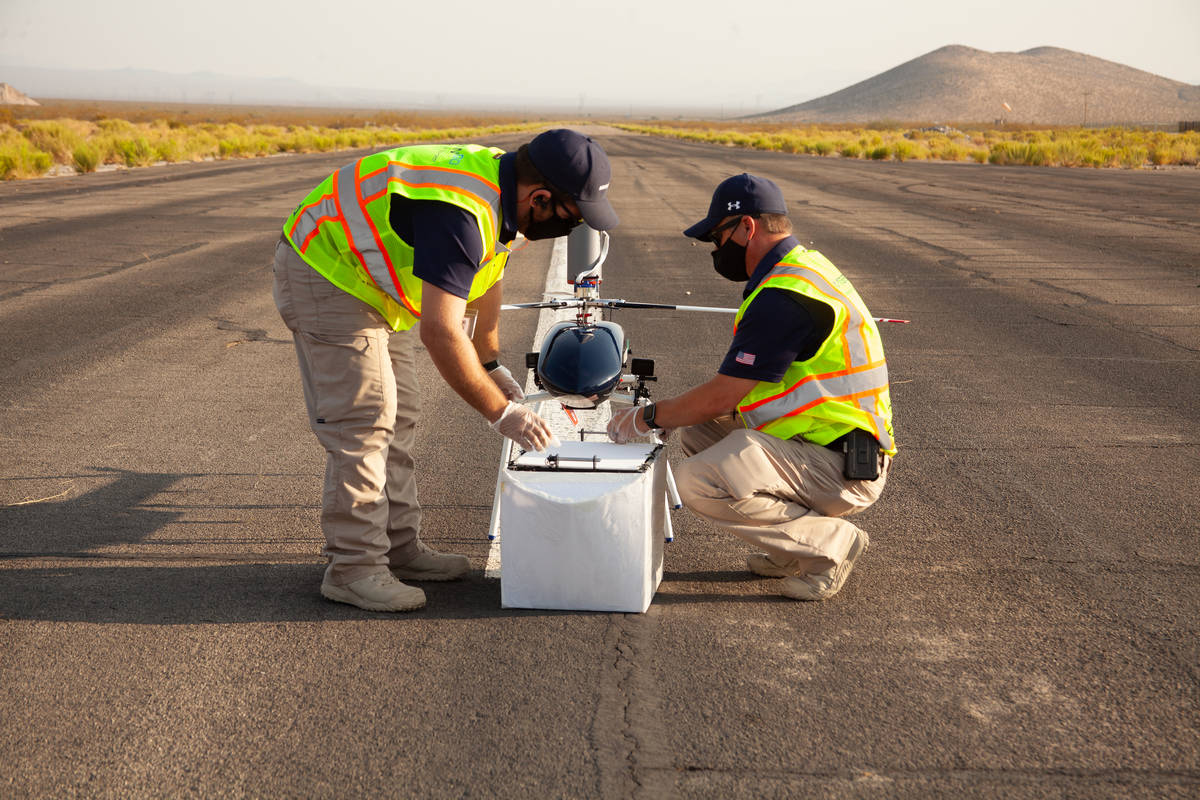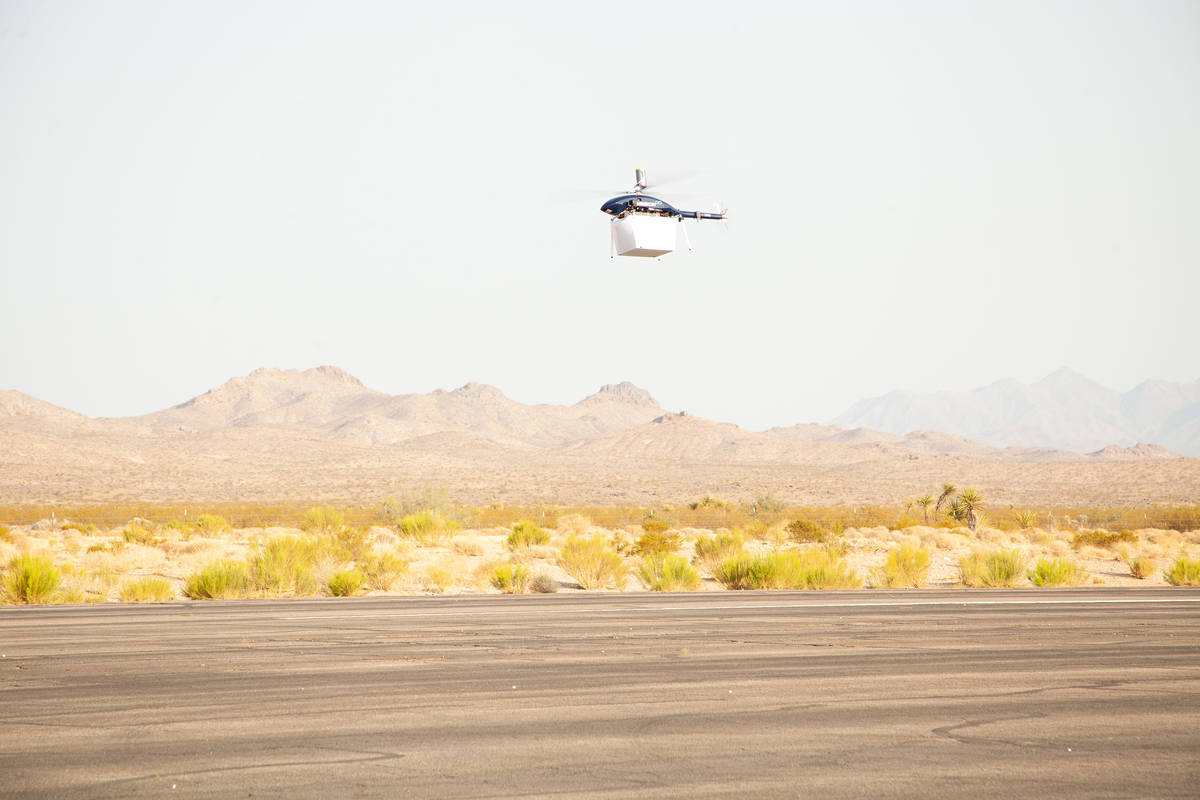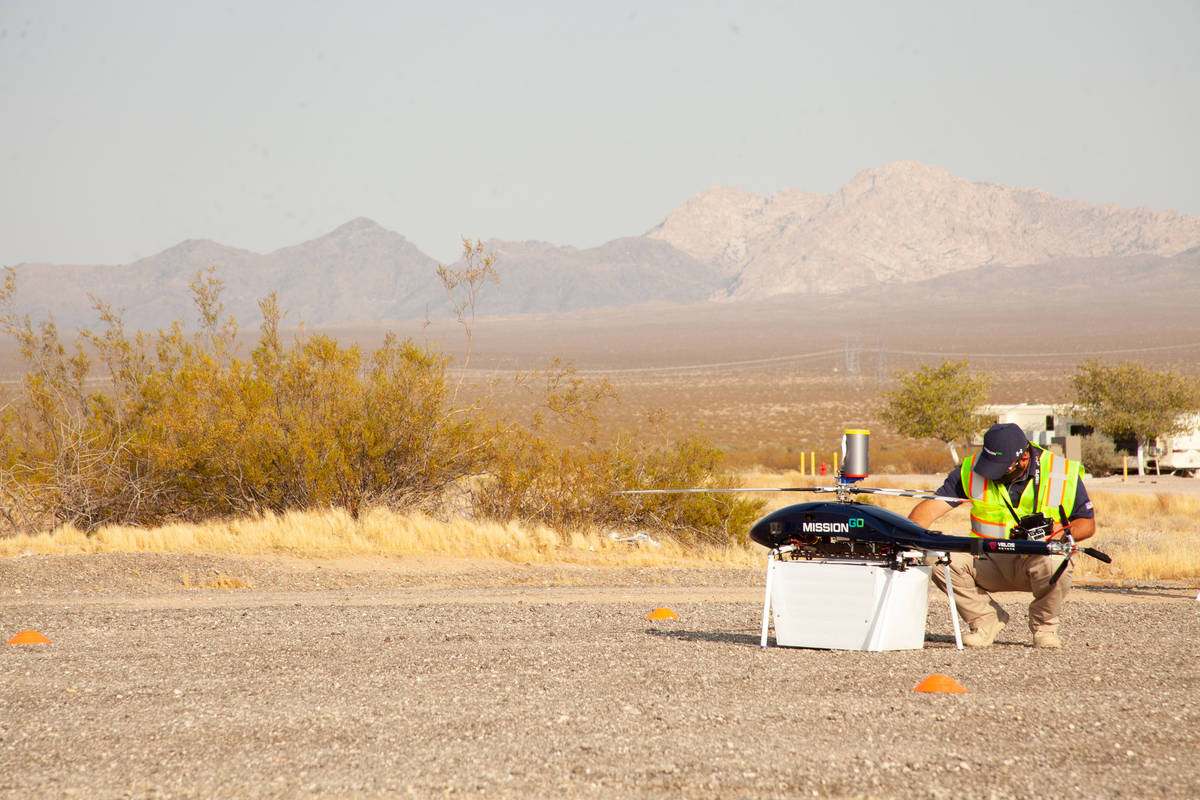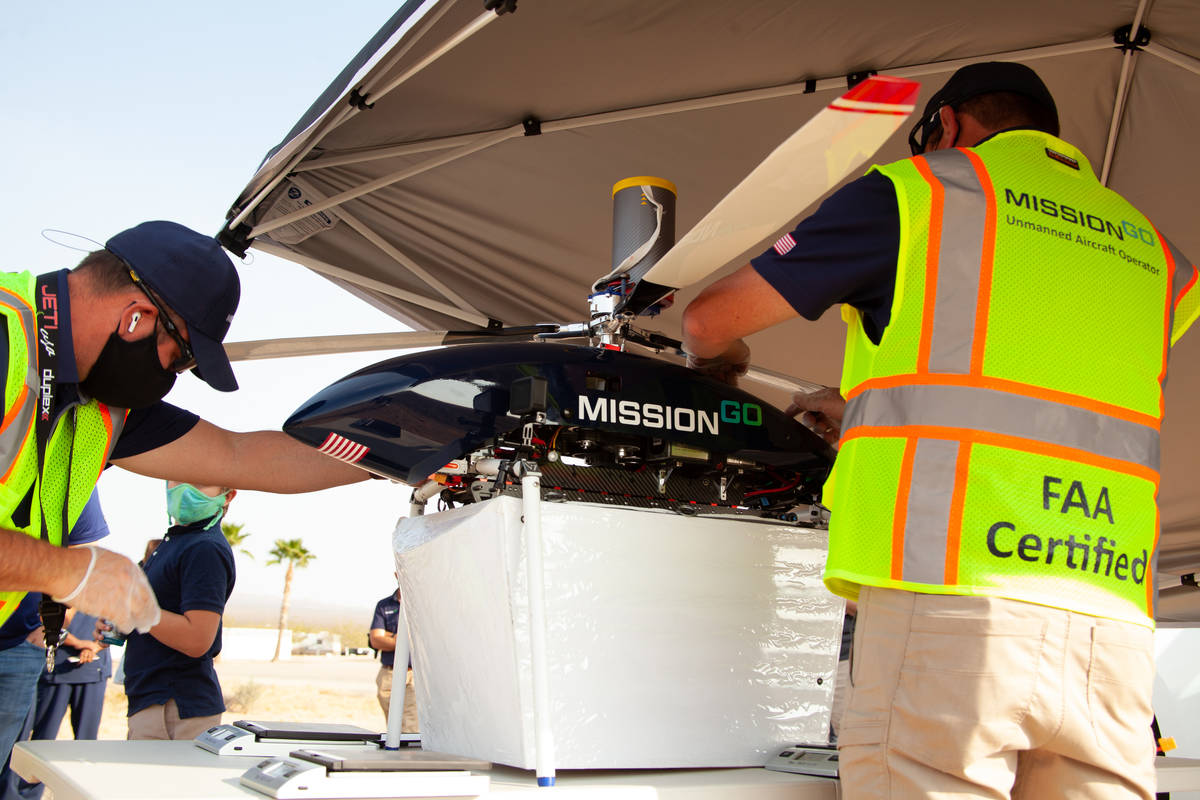Drones transporting organs tested over Las Vegas
Drones carrying human organs flew over Las Vegas last week to see whether drones can save crucial minutes for transplantation.
The two test flights are a partnership between MissionGO, a national provider of drone technology, and the Nevada Donor Network.
For the best chance at saving lives, organs need to be transplanted as soon as possible once removed from donors’ bodies. The process of delivering donated organs is often time-sensitive, and conventional transportation means can be limited. Flying organs by drone decreases the time between organ donation and transplantation, MissionGO said.
“The success of last week’s tests launches us into the future of organ transportation and will enable us to be even more successful in the coming years,” Nevada Donor Network CEO Joe Ferreira said in a statement. “The work we’re doing now to maximize the gift of life and health can only be amplified with the services that MissionGO demonstrated. The future of organ donation and transplantation will be defined by innovation.”
The first flight, designed to see how drones would work in an urban setting, transported research corneas from Southern Hills Hospital and Medical Center to the San Martin campus of Dignity Health’s St. Rose Dominican Hospital.
The second flight, which delivered a research kidney from an airport to a location outside of a small town in the Las Vegas desert, flew 10.3 miles in under 30 minutes. It was the longest organ delivery flight for a drone and surpasses the distance of a historic unmanned flight in April 2019 when MissionGO helped deliver the first kidney by drone that was then successfully transplanted into a patient.
The test flights also emphasized the reduced number of handoffs by transporting the organ directly between hospitals through the air, instead of ground-based couriers.
The majority of organs donated in Las Vegas have to be shipped to recipients in other states because of limited transplant programs available locally.
“These flights are an exciting step forward — the research conducted during last week’s test flights are another data point to illustrate that unmanned aircraft are a reliable mode of transportation for life-saving cargo,” MissionGO President Anthony Pucciarella said in a statement.
MissionGO said additional flight tests are planned throughout this year and 2021 across the country.
Contact Jonathan Ng at jng@reviewjournal.com. Follow @ByJonathanNg on Twitter.






















